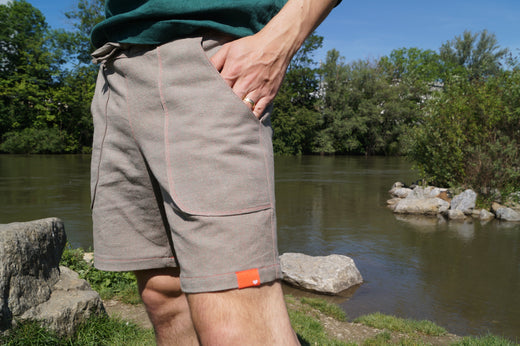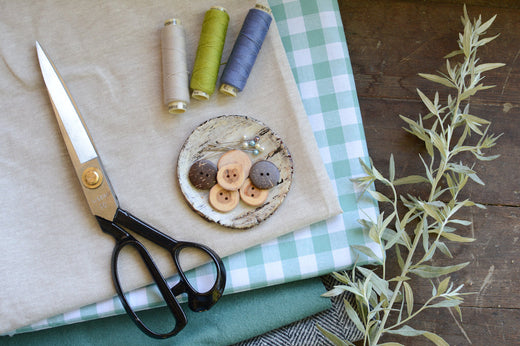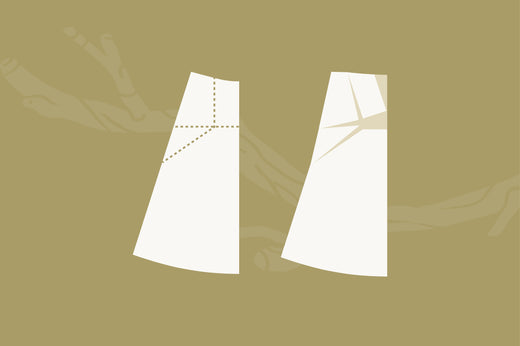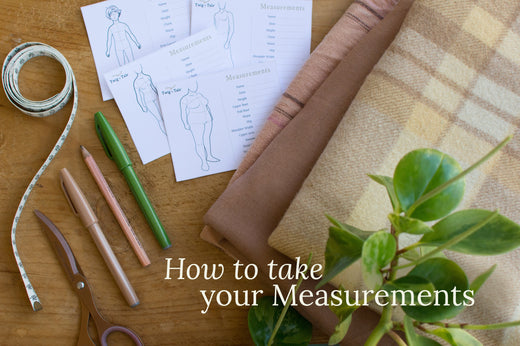Flared or flounce sleeves are designed to drape with soft folds around the arm to give a soft, relaxed feel. The shape of this sleeve style naturally provides wearable ease in the upper arm, but can also make it difficult to adjust the sleeve using a regular set-in sleeve adjustment.
Even if your upper arm measurement is larger than your base size, you may find that you don't need to make an adjustment, due to the shape of the flared sleeve. However, if you feel like your arm shape will flatten out the drapey folds in the sleeve, or perhaps you would like an extra flared statement sleeve, then this tutorial will guide you through adding more width to the sleeve.
Use this adjustment with the flared sleeves from the Breeze Shirt, the Scenic Top, the Vista Top, and the Sleeve Add-On.

Materials
- Flared sleeve pattern piece (we're demonstrating using the Breeze Shirt, the Scenic Top, and the Sleeve Add-On)
- Measuring tape
- Scrap paper
- Tape
- Ruler
- Pencil
Adjust pattern piece
1. In the middle of the sleeve head at the top notch, mark in the stitching line 3/8"/1cm from the edge of the pattern piece.

2. Draw a line parallel to the grainline from the top notch at the shoulder to the sleeve hem. Cut along the line from the hem up to but not through the stitching line marked in the previous step. Then make a small cut from top of sleeve head down to but not through the stitching line to create a pivot point.

3. Slide a larger piece of paper under the pattern piece to tape adjustments in place. Pivot out the hem as much as you wish to add more flare.
The Scenic Top Flare Sleeve is more fitted around the upper arm than the other styles so it is a good idea to double check the underarm measurement against your body measurement before taping the pattern and adding more as necessary. A minimum of 2" (5cm) ease is necessary for the sleeve to be comfortable.

4. Blend the hem and sleeve head edges.

Continue to cut and sew your top as outlined in the pattern tutorial. Enjoy wearing a garment with a custom fit!

Read more pattern fitting tutorials here:





